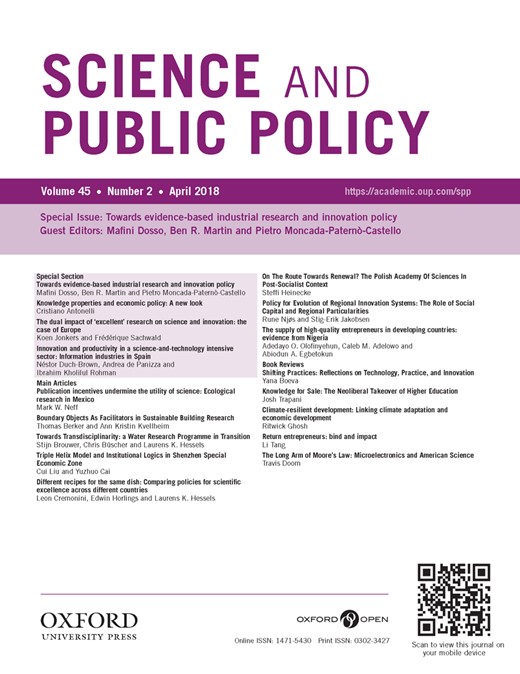-
Views
-
Cite
Cite
Leon Cremonini, Edwin Horlings, Laurens K Hessels, Different recipes for the same dish: Comparing policies for scientific excellence across different countries, Science and Public Policy, Volume 45, Issue 2, April 2018, Pages 232–245, https://doi.org/10.1093/scipol/scx062
Close - Share Icon Share
Abstract
Many countries witness the rise of ‘excellence initiatives’. These policies promote vertical differentiation in the science system by funding top research performers and expecting positive spillover effects. However, current understanding of the functioning and (potential) effects of these instruments is limited. We compare policies aimed at promoting excellence in four countries (the UK, Germany, Denmark, and Switzerland), using secondary sources and fourteen expert interviews. Using the notion of coordination approaches as a heuristic tool, we characterise each policy in terms of the coordinating actor, the system addressed, the activities that are coordinated, the specific interventions taken, and the types of relationships affected. We find that countries adopt very different approaches to reach similar goals and thus bring into question appealing but simplistic ideas of ‘excellence’ as an agreed concept. Remarkably, excellence policies are more prone to reveal existing but tacit diversity in the system than to generate new relational patterns.



